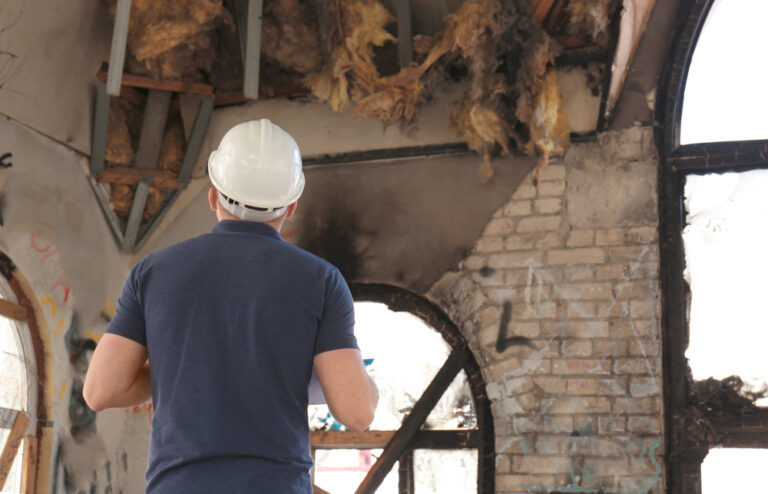Considering a Career as a Commercial Property Claims Adjuster?
In the world of insurance, commercial property claims adjusters play a vital role in helping businesses recover from unforeseen disasters. These professionals are the bridge between policyholders and insurers, ensuring that claims are efficiently and fairly handled. To shed light on this intriguing career path, we’ll walk through a day in the life of a commercial property claims adjuster with initial training as an ACA from Educational Services & Consulting (ESC).
Though no two days are alike and one of the benefits of working as a commercial claims adjuster is the ability to build flexibility into your day. In assessing the job functions of a commercial property claims adjuster some may consider structuring their day as follows:

Morning Routine and Preparation
A commercial property claims adjuster’s day typically starts with a review of emails and messages received overnight. Many use the first hour of the day to prioritize tasks and identify any urgent claims that require immediate attention. Before heading out for inspections, adjusters go through a checklist of items they will need out in the field. Often, this includes a fully charged laptop, a digital camera, measuring tools, a notepad, and other materials from their employer or proprietary ones they’ve created. ESC’s accredited claims adjustment training program has equipped them with the knowledge and skills necessary to handle a wide range of claims effectively and they can apply this knowledge to the specialty area of commercial claims adjustment.
Onsite Inspections
One of the most critical aspects of a claims adjuster’s job is conducting onsite inspections. Once the adjuster receives details of a commercial property that recently suffered damage, such as from a fire or a burst pipe, they schedule a time to visit and inspect the property in person. The adjuster will arrive at the scene prepared to assess the extent of the damage, document it thoroughly, and estimate the cost of repairs. ESC’s training has honed the adjuster’s ability to identify the intricacies of claims. They know how to look for hidden damage, structural issues, and factors that may affect the claims process. This meticulous attention to detail gives adjusters the ability to provide policyholders with a fair and accurate settlement.
Communication and Collaboration
After completing an inspection, the adjuster returns to their office to process the gathered information. They communicate with the policyholder, explaining the next steps in the claims process. ESC’s training has emphasized the importance of effective communication and empathy, enabling our adjusters to provide reassurance and clarity during what can be a stressful time for policyholders. Commercial property claims often involve various parties, including contractors, engineers, and legal professionals. The adjuster collaborates with these experts to assess complex claims. ESC’s program equips people with skills to ensure that the claims process runs smoothly.
Data Analysis and Report Writing
The adjuster often has to delve into data analysis, writing reports and spend a descent amount of time scrutinizing photographs, looking at measurements, and assessing repair estimates to prepare a comprehensive claims report. This report serves as the basis for determining the settlement amount. ESC’s training has instilled a strong sense of ethics and fairness throughout their program so adjusters understand how to analyze a claim and make a fair assessment for the claimant. Adjusters will evaluate policy coverage, to ensure that policyholders receive the compensation they are entitled to, while also protecting the interests of the insurer.
Client Consultations
The day typically includes client consultations. Usually adjusters will meet with policyholders over the phone to review the claims process, answer questions, and address any concerns. ESC’s training has emphasized the importance of transparency and integrity in these interactions, which helps clients feel heard and respected.
Working as a commercial property claims adjuster can be extremely rewarding. Many adjusters gain satisfaction in knowing they have helped a policy holder bring closure to their claim in a timely manner so the claimant can move forward with making repairs and getting on with their life. Typically an adjuster brings a unique blend of technical expertise, ethical integrity, and empathetic communication to their role. They serve as a lifeline for businesses in their time of need, helping them recover and rebuild after unexpected disasters. As commercial property claims adjusters continue to refine their skills initially learned through ESC’s comprehensive program, these people play a pivotal role in ensuring that the insurance industry operates with fairness, transparency, and professionalism. They are on the front lines representing insurance companies and working with policy holders directly.
For more information on how to earn your 6-20 Accredited Claims Adjuster (ACA) designation and join this growing field, we invite you to call our Clermont, Florida office at 1-800-309-2549 or read more about the accredited claims adjuster certification process on our website. Beyond our ACA course, we have partnerships with other organizations that offer our students additional training for further development.
In Florida, once individuals earn their 6-20 accredited claims adjuster designation, they can apply to the state for their all-lines adjuster license. This will enable them to work on home insurance claims, auto and RV insurance claims and property insurance claims. These individuals would have the flexibility to work as a staff claims adjuster or an independent insurance adjuster.
Even if people move out of the state of Florida or their practice takes them out of state, Florida has a reciprocity agreement with other states within the U.S. Individuals who obtain their Florida ACA license are eligible to work in 34 of the 37 states across the U.S. that require an adjuster license. For more information give us a call at 1-800-309-2549.
Information in this blog post is for informational purposes only and is subject to change at any time.
